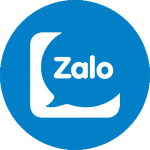Goose Goose Duck: Deception, Asset Risk, and the Invisible Logic of Insurance and Claims
Introduction
Goose Goose Duck is a chaotic, social-deduction party game where players take on the roles of geese and ducks aboard a spaceship or in themed locations. Geese complete tasks, while ducks sabotage and eliminate them—all under a layer of lies, stealth, and bluffing. While the game appears light-hearted and humorous, its core mechanics mirror deeper concepts from the real world, especially in the realm of risk, responsibility, unexpected losses, and even claims logic found in insurance systems.
In this article, we’ll explore how Goose Goose Duck reflects hidden structures of asset protection, trust liability, and loss scenarios, showing that even in a cartoonish world of geese and ducks, there are powerful parallels to how real-life insurance operates.
📥Download game: https://pixelgamelvn.online/
What Is Goose Goose Duck and Why Is It So Popular?
Goose Goose Duck is a multiplayer game inspired by Among Us, where up to 16 players participate in:
-
Completing tasks (as Geese)
-
Sabotaging and eliminating others (as Ducks)
-
Playing special roles (Vigilante, Dodo, Morphling, etc.)
The goal varies:
-
Geese win by finishing tasks or identifying all Ducks
-
Ducks win by eliminating Geese or causing chaos
-
Neutral roles win via specific, often tricky, objectives
Success depends on social deduction, strategic lying, and risk control.
Death in Silence: Unprotected Assets and Unrecoverable Loss
When a Goose dies:
-
Their role is revealed
-
Their progress on tasks is lost
-
Their impact on the match ends instantly
There’s no recovery, no insurance on your role, and no post-death influence unless you’re a ghost helping finish tasks.
This is like:
-
An uninsured worker’s accident
-
Business disruption without coverage
-
Sudden loss with no backup plan
It reinforces the idea: you must act strategically while you still have power—just like in life and business.
Trust and Betrayal: Liability Without Proof
Goose Goose Duck is built around trust:
-
You trust teammates not to kill you
-
You vote based on limited info
-
One false accusation can ruin the round
This mirrors:
-
Miscommunication in risk management
-
Internal fraud in companies
-
Lack of due diligence leading to blame
In insurance, these are errors and omissions or liability claims—caused not by disasters, but by humans making bad calls.
Sabotage and Disaster Events: The “Acts of God” Mechanic
Ducks can sabotage:
-
Communications
-
Lights
-
Security systems
-
Oxygen and reactor events
These sabotage actions are disaster events—they simulate:
-
Cyberattacks
-
Power outages
-
Environmental emergencies
If not handled in time, they cause total party loss, like a business shutting down due to a fire with no coverage.
Special Roles and High-Risk Assets
Some roles in the game are:
-
Powerful (Vigilante can kill Ducks)
-
Risky (Dodo must get voted out)
-
Unpredictable (Morphling can shapeshift)
Holding a special role means:
-
You’re a high-value target
-
Your actions can turn the game
-
One wrong move = total loss
This reflects:
-
Key person insurance (critical role in a company)
-
High-risk investments (big return, big loss)
-
Insider threat exposure in corporations
Managing a role well is like risk-managing an insured portfolio.
Ghosts Finishing Tasks: Claims Processing After Loss
After dying, Geese become ghosts that can still:
-
Finish their tasks
-
Contribute to the team’s win
-
Passively support the remaining crew
This is symbolic of claim recovery after a loss:
-
Even when the damage is done, you can recoup value
-
Ghost tasking = post-incident mitigation
-
Finishing objectives after a disaster still impacts outcome
It teaches: death isn’t the end if systems are in place to recover function—just like in insured business continuity planning.
Emergency Meetings: Investigation and Fraud Claims
During meetings, players:
-
Share information
-
Accuse each other
-
Vote out threats—or innocents
This is equivalent to:
-
Insurance investigations
-
Fraud detection
-
Loss adjustment interviews
False claims (like wrongly accusing someone) lead to:
-
Innocents being eliminated
-
Real threats staying hidden
-
Wasted opportunities to recover
Just like real-world insurers must identify fraud and validate evidence, players must make logical deductions to win.
![]()
Game Modes and Variable Rules = Policy Customization
Goose Goose Duck supports custom game modes:
-
Classic
-
Hide & Seek
-
Draft roles
-
Proximity chat or limited vision
These modes affect how:
-
Roles behave
-
Communication works
-
Game dynamics shift
It’s just like customizing an insurance policy:
-
Want cyber liability? Add it.
-
Need flood coverage? Build it in.
-
Too many claims? Increase the premium.
Game setup affects outcome, just like coverage setup affects claim success.
Multiple Roles = Bundled Liability and Coverage
Each game mixes:
-
Killers (Ducks)
-
Innocents (Geese)
-
Neutrals (Dodo, Vulture, Esper, etc.)
Each has:
-
Win conditions
-
Interaction risks
-
Claim-like responsibilities (some win only if voted out!)
This represents a bundled insurance policy:
-
One policy may cover fire, theft, and cyber
-
Each clause has different conditions
-
A single action can activate or nullify a claim
Managing roles in Goose Goose Duck is like juggling multi-layered liability scenarios.
No Insurance System… But Claim Logic Is Everywhere
While the game doesn’t have an in-game insurance system, its mechanics create claim-like situations:
| In-Game Event | Real-World Insurance Parallel |
|---|---|
| Goose wrongly voted out | Denied claim despite being innocent |
| Duck wins via deception | Fraudster successfully manipulates system |
| Ghost finishes tasks | Post-incident mitigation or subrogation |
| Task loss after death | Loss without recovery clause |
| Emergency vote discussions | Insurance investigation process |
Every player choice involves:
-
Risk assessment
-
Blame attribution
-
Value loss or recovery
Conclusion
Goose Goose Duck may look like a goofy party game, but beneath the feathered fun is a world of strategic risk, unseen liability, and loss without protection. From surprise sabotage to false accusations, every round teaches players how value can disappear in an instant—and how choices made in seconds echo through the whole match. Just like in insurance: your plan, your defense, and your recovery strategy matter most when the unexpected happens.
📍Download Now: https://store.steampowered.com/app/1568590/Goose_Goose_Duck/




